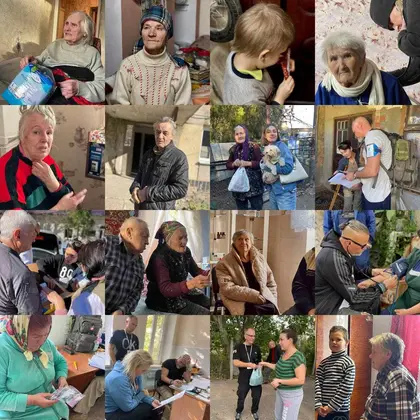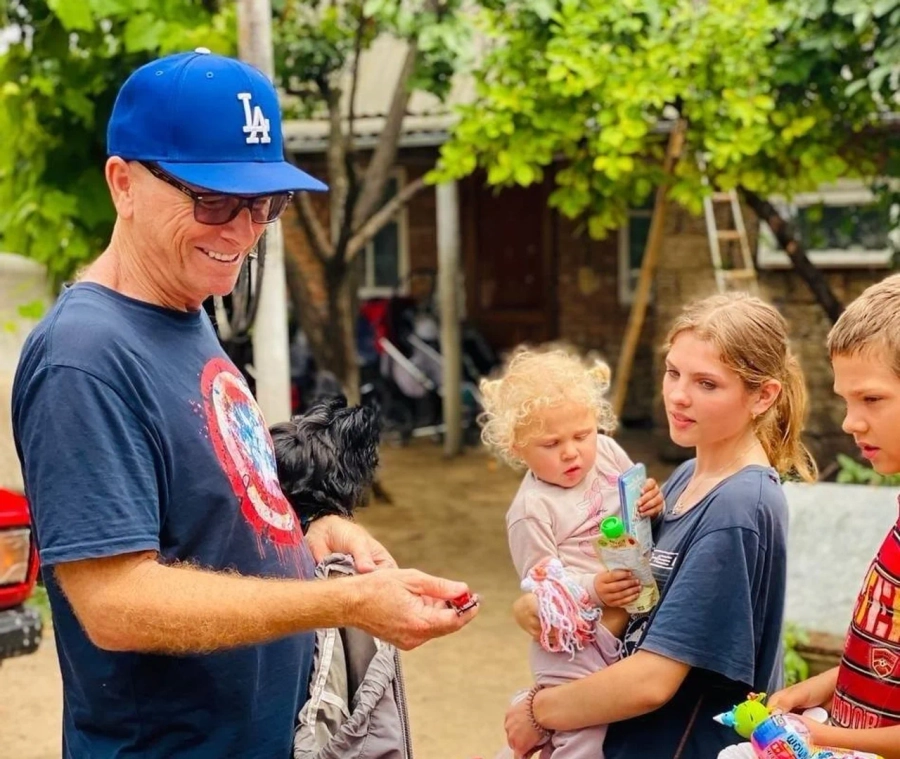Russia’s attack on Ukraine mobilized a wave of volunteers from abroad who were eager to help the local population and refugees. Michael Scolari, from California, is one of them.
Before the full-scale invasion he led a happy life in Odesa as a foreign resident. When Ukraine was attacked he dedicated his time and energy to help needy people in the region by establishing the Ukraine Assistance Organization.
JOIN US ON TELEGRAM
Follow our coverage of the war on the @Kyivpost_official.
What was your life in Odesa like before the war? When did you arrive?
I arrived in Odesa seven years ago from Silicon Valley California where I lived all my life. I worked 25 years in technology and was the Senior Director for EMEA, a Silicon Valley technology company that had a development center here in Ukraine, so I decided to move to Odesa.
What happened when the war broke out? How did it start your current humanitarian commitment?
When the war started, I stopped working in technology and volunteered with a group delivering food, clothing, etc., to people who needed help in the Odesa area. The more homes I went to, the more I saw a real need for medications, as very few organizations were doing this. Many people are non-ambulatory and unable to even use their homes, and hospitals are not providing medications for free.
How does your aid to the Ukrainian population work? Where do you get your funds? How do you decide where to help?
We work with village administrators and social workers. We contact them to see the need in their locations, which are mostly rural towns and villages. We schedule a day to bring our team and then meet with each person to see which medications they need and that they have a valid prescription from a doctor. We also take copies of their ID, passport, etc. We then buy the medications and return to this area to deliver the medications and get multiple signatures to document everything.

ISW Russian Offensive Campaign Assessment, January 21, 2025
We originally got donations from friends, but the last nine months there have been grants from large international NGOs. We received grants from Americares, Hebrew Immigrant Aid Society and two grants from BlueCheck Charitable Foundation. We buy all our medication locally from well-known approved providers of medications. We go back monthly to each location we have visited and constantly reach out to other village administrators to provide free medications. We are constantly in need of more funding to reach more and more rural areas.
What did you find outside the big city of Odesa, in the small towns of the region?
Outside of Odesa, in the small towns we find incredible people: generous, helpful and grateful for the help we provide. In many of the rural areas the churches are most helpful and effective. There is great need in the small villages as the big NGOs are not going there and rarely have they seen anyone arrive to help.
What’s needed from the Ukrainian Government and local administration to enhance your activity? What are the biggest difficulties?
The biggest difficulties are funding. We recently went to a village area with one of the large international NGOs and we were disappointed by how inefficient there were. We operate much more efficiently with about 10 percent of the budget these organizations have. We have extensive reporting we must do for the government, and even though we are a small team we have three people dedicated to creating documentation and reporting full time in our office.
You can also highlight the text and press Ctrl + Enter














